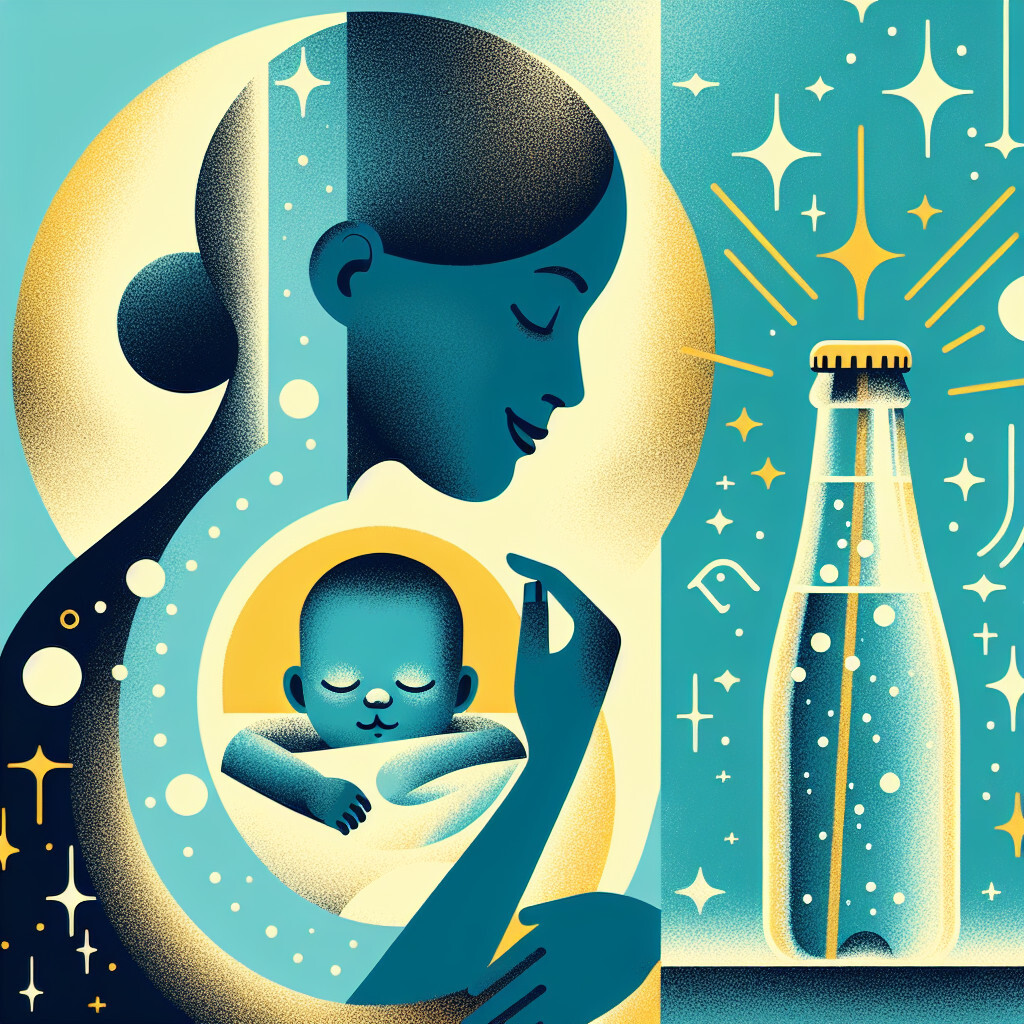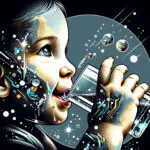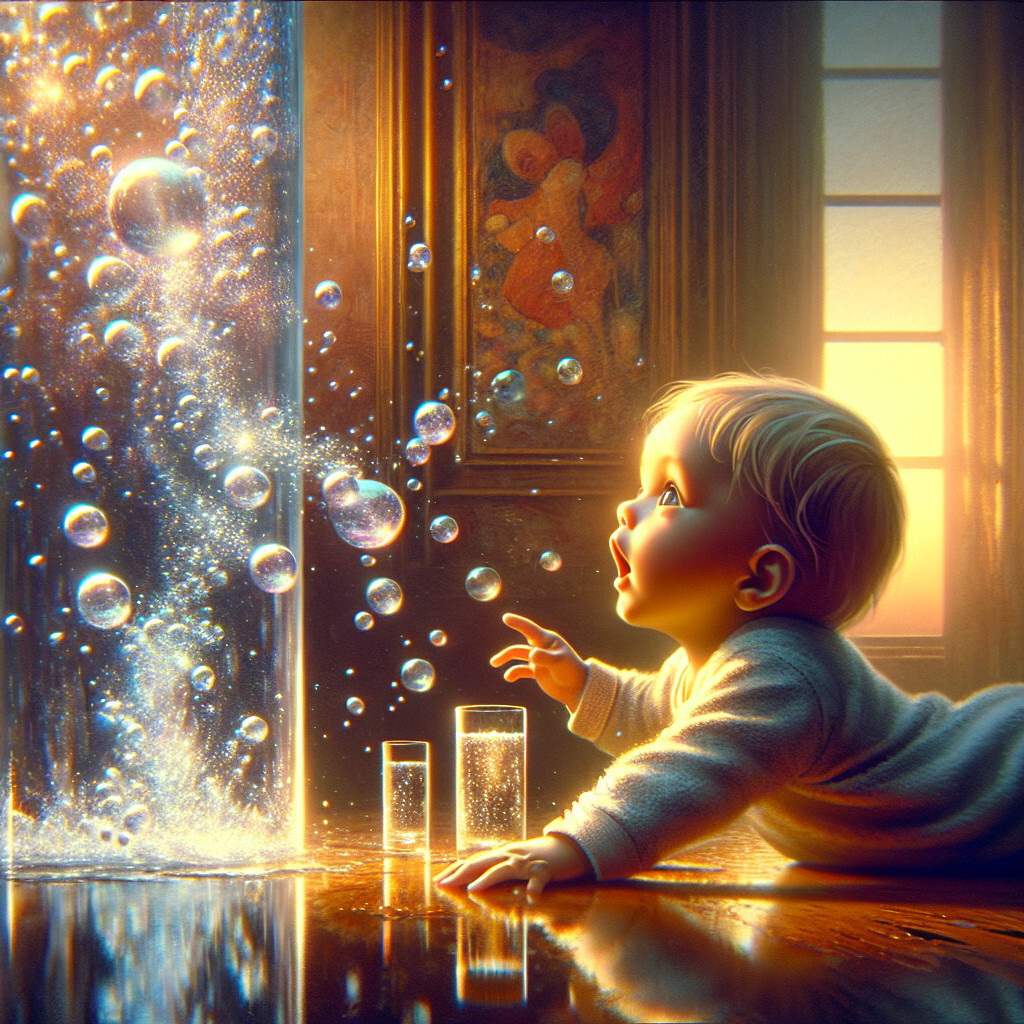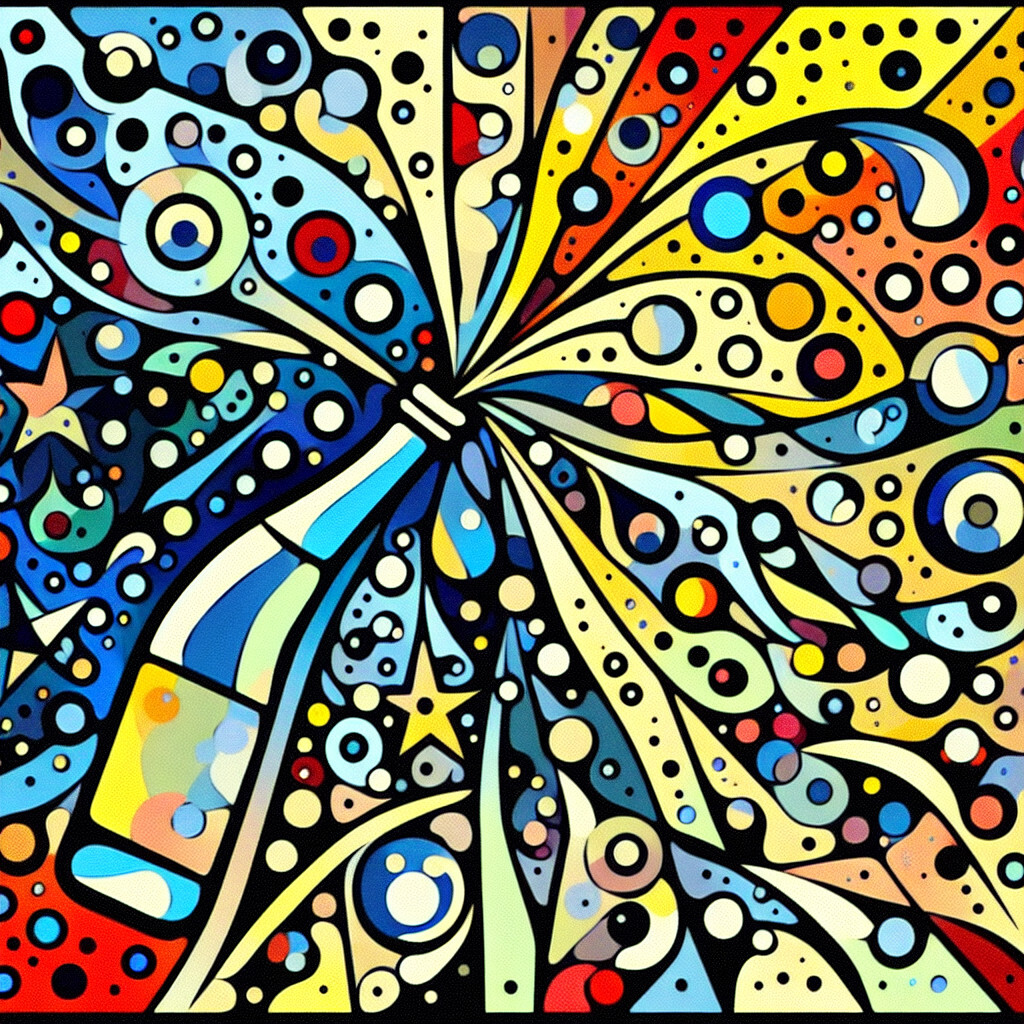-
Table of Contents
“Sparkling Water: A Safe Hydration Choice, Unlikely to Affect Breastfed Babies.”
Introduction
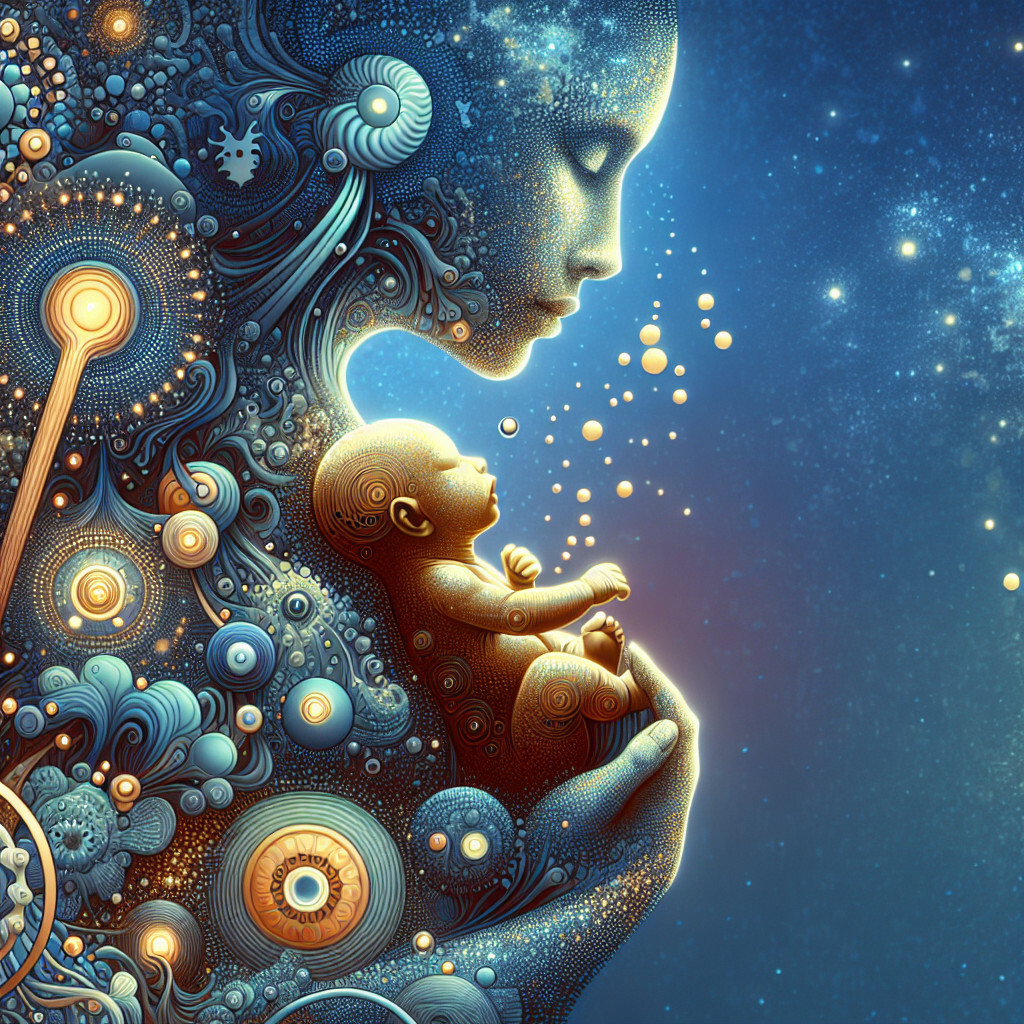
Sparkling water, a popular beverage choice for many, is often consumed for its refreshing taste and hydrating properties. However, when it comes to breastfeeding mothers, there are concerns about whether the consumption of sparkling water can affect their babies. The potential impact on the baby can be related to the mother’s hydration levels, the transfer of gas through breast milk, and the possible presence of caffeine or artificial sweeteners in certain types of sparkling water. This introduction will explore these aspects in detail to understand if and how sparkling water can affect a breastfed baby.
The Impact of Sparkling Water on Breastfeeding: A Comprehensive Study
Breastfeeding is a critical period in a child’s life, providing not only nourishment but also essential antibodies that help to build the baby’s immune system. During this period, the mother’s diet plays a significant role in the quality of breast milk produced. One question that often arises among breastfeeding mothers is whether the consumption of sparkling water can affect their breastfed baby.
Sparkling water, also known as carbonated water, is a popular beverage choice due to its refreshing taste and perceived health benefits over sugary drinks. It is essentially water into which carbon dioxide gas has been dissolved under pressure, resulting in a fizzy drink. While it is generally considered safe for consumption, its impact on breastfeeding mothers and their babies is a topic that warrants comprehensive study.
Firstly, it is important to note that sparkling water, in its pure form, is just water and carbon dioxide, both of which are harmless to the body. The carbon dioxide, once consumed, simply evaporates into the air or is used by the body in various metabolic processes. Therefore, the basic components of sparkling water pose no direct harm to the breastfeeding mother or her baby.
However, the situation becomes slightly more complex when we consider the various additives that are often included in commercially available sparkling water. These can include artificial sweeteners, flavors, and other chemicals that could potentially affect the quality of breast milk. While the research in this area is not extensive, some studies suggest that certain artificial sweeteners can pass into breast milk and may have unknown effects on the baby. Therefore, it is advisable for breastfeeding mothers to choose sparkling water that is free from these additives, or to limit their consumption of flavored or sweetened sparkling water.
Another aspect to consider is the potential impact of sparkling water on the mother’s digestion. Some people find that carbonated beverages can cause bloating or discomfort due to the release of carbon dioxide gas in the stomach. If a breastfeeding mother experiences these symptoms, it could potentially affect her comfort and well-being, which in turn could impact her ability to breastfeed effectively.
In terms of hydration, which is crucial for maintaining a good milk supply, sparkling water is as effective as still water. Therefore, if a breastfeeding mother enjoys drinking sparkling water, it can certainly form part of her hydration strategy. However, it should not replace other nutritious fluids such as milk or fruit juices, which provide additional nutrients that are beneficial for both the mother and the baby.
In conclusion, while sparkling water in its pure form does not pose any direct risks to a breastfed baby, the potential impact of additives and the mother’s digestive comfort should be considered. As with any dietary choice during breastfeeding, moderation and balance are key. If a mother has any concerns about her diet and its impact on her baby, it is always advisable to consult with a healthcare professional.
Does Sparkling Water Affect the Quality of Breast Milk?
Breastfeeding is a critical period in a baby’s life, as it provides the necessary nutrients for growth and development. Mothers are often cautious about their diet during this period, as what they consume can directly affect the quality of their breast milk. One question that often arises is whether sparkling water can affect the quality of breast milk and, consequently, the health of the breastfed baby.
Sparkling water, also known as carbonated water, is a popular beverage choice for many, especially those trying to reduce their intake of sugary drinks. It is essentially water into which carbon dioxide gas has been dissolved under pressure, resulting in a fizzy drink. While it is generally considered safe for consumption, some people may wonder if its consumption can have any impact on breastfeeding mothers and their babies.
Firstly, it is important to note that sparkling water is just water that has been carbonated. It does not contain any nutrients or calories, and therefore, it does not directly contribute to the nutritional content of breast milk. The primary components of breast milk are water, carbohydrates, proteins, and fats, which are all derived from the mother’s diet. Since sparkling water does not provide any of these nutrients, it cannot directly affect the quality of breast milk.
However, hydration plays a crucial role in breast milk production. Dehydration can lead to a decrease in milk supply, making it harder for the baby to get the necessary nutrients. Sparkling water can contribute to a mother’s hydration levels, just like regular water. Therefore, in this sense, drinking sparkling water could indirectly support breast milk production by helping to keep the mother hydrated.
On the other hand, some mothers may experience bloating or gas due to the carbonation in sparkling water. While this discomfort does not directly affect the quality of breast milk, it could potentially make breastfeeding more uncomfortable for the mother. It’s also worth noting that while the carbonation itself doesn’t pass into breast milk, if the sparkling water is flavored or contains additives like sodium or artificial sweeteners, these could potentially pass into the breast milk and affect the baby.
Moreover, some studies suggest that consuming carbonated beverages may lead to a decrease in bone density due to changes in calcium metabolism. However, these studies primarily focus on soft drinks, which contain phosphoric acid, not sparkling water. More research is needed to determine if sparkling water has the same effect.
In conclusion, sparkling water does not directly affect the quality of breast milk. It can contribute to a mother’s hydration, which is essential for milk production. However, if the sparkling water is flavored or contains additives, these could potentially pass into the breast milk. Mothers who experience bloating or gas from drinking sparkling water may want to limit their consumption to ensure their comfort while breastfeeding. As always, it is recommended that breastfeeding mothers maintain a balanced diet and stay well-hydrated to support their health and the health of their baby.
Understanding the Effects of Carbonated Drinks on Breastfed Babies
Understanding the effects of carbonated drinks, particularly sparkling water, on breastfed babies is a topic of interest for many nursing mothers. The question, “Does sparkling water affect a breastfed baby?” is one that requires careful consideration and understanding of the nutritional needs of infants and the potential impacts of a mother’s diet on breast milk composition.
Breast milk is a complex, dynamic source of nutrition that changes in composition to meet the evolving needs of the growing infant. It is influenced by a variety of factors, including the mother’s diet. Therefore, what a nursing mother consumes can potentially affect her baby. However, it’s important to note that the impact of maternal diet on breast milk is often minor, and most substances a mother consumes will not directly harm her baby.
When it comes to sparkling water, it is essentially water that has been infused with carbon dioxide under pressure. This process gives the water its bubbles or “sparkle.” Sparkling water is generally considered safe for consumption during breastfeeding. It does not contain any harmful substances that could potentially be passed on to the baby through breast milk. Moreover, staying hydrated is crucial for nursing mothers, and drinking sparkling water can contribute to meeting daily fluid requirements.
However, some concerns may arise from the consumption of sparkling water. One of these is the potential for increased gas or bloating in the mother. The carbonation in sparkling water can lead to a buildup of gas in the stomach, which can cause discomfort. While this gas does not pass into breast milk, a mother’s discomfort might indirectly affect her ability to nurse or care for her baby.
Another concern is the potential impact on milk production. While there is no direct evidence linking sparkling water to decreased milk supply, some mothers may experience changes in their milk production due to changes in their overall fluid intake. It’s important to remember that while sparkling water can contribute to hydration, it should not replace other sources of fluids, particularly if a mother finds that it makes her feel full and potentially decreases her overall fluid intake.
Lastly, it’s worth noting that not all sparkling waters are created equal. Some brands may add sodium, artificial sweeteners, or other additives to their products. While these are generally safe in moderation, excessive consumption could potentially impact the mother’s health and, by extension, her breast milk. Therefore, it’s always a good idea to check the label and choose sparkling waters with no added sugars or other unnecessary additives.
In conclusion, while sparkling water does not directly affect a breastfed baby, it can have indirect effects on breastfeeding. It’s important for nursing mothers to maintain a balanced diet and stay hydrated with a variety of fluids. If a mother enjoys sparkling water, it can certainly be a part of her hydration strategy, but it should not be the only source of hydration. As with all aspects of diet during breastfeeding, moderation is key. If any concerns arise, it’s always best to consult with a healthcare provider or a lactation consultant.
Sparkling Water and Breastfeeding: Unveiling the Truth
Breastfeeding mothers often find themselves questioning their dietary choices, wondering how what they consume might affect their breast milk and, consequently, their baby. One such concern that has been raised is the potential impact of sparkling water on a breastfed baby. This article aims to unveil the truth about this topic, providing clarity for nursing mothers.
Sparkling water, also known as carbonated water, is a popular beverage choice for many, especially those seeking a healthier alternative to sugary sodas. It is simply water into which carbon dioxide gas has been dissolved under pressure, resulting in a fizzy drink. Some varieties may also contain added minerals or natural flavors, but they typically do not contain sugar, calories, or caffeine.
The primary concern about sparkling water and breastfeeding arises from the carbonation process. The question is whether the carbon dioxide used to create the bubbles in sparkling water can somehow be transferred to the breast milk and affect the baby. However, according to current scientific understanding, this is highly unlikely. The body is designed to filter out and expel excess gases, such as carbon dioxide, through the respiratory system. Therefore, the carbon dioxide from sparkling water would be exhaled long before it could reach the breast milk.
Another concern is the potential for sparkling water to cause gas or bloating in the baby. Again, this is unlikely. While carbonated beverages can cause gas or bloating in some people, this is due to the gas being released in the stomach. This gas does not pass into the bloodstream and therefore cannot be transferred to the breast milk.
However, it’s important to note that not all sparkling waters are created equal. Some brands may add artificial sweeteners, caffeine, or other additives that could potentially affect a breastfed baby. For instance, caffeine can pass into breast milk and may cause irritability or sleep disturbances in some babies. Therefore, it’s always a good idea to check the label before consuming any sparkling water while breastfeeding.
Moreover, while sparkling water is generally safe for breastfeeding mothers, it should not replace regular water in the diet. Hydration is crucial for maintaining a healthy milk supply, and while sparkling water can contribute to this, it should not be the primary source of hydration. Regular water is still the best choice for staying hydrated.
In conclusion, the consumption of sparkling water by a breastfeeding mother is unlikely to have any negative effects on the baby. The carbonation process does not result in gases being transferred to the breast milk, and the potential for causing gas or bloating in the baby is minimal. However, mothers should be mindful of any added ingredients in sparkling water, such as caffeine or artificial sweeteners, and should continue to prioritize regular water for hydration. As always, if there are any concerns about diet and breastfeeding, it is recommended to consult with a healthcare provider.
Q&A
1. Question: Can drinking sparkling water affect the quality of breast milk?
Answer: No, drinking sparkling water does not affect the quality of breast milk.
2. Question: Can a breastfeeding mother drink sparkling water?
Answer: Yes, a breastfeeding mother can drink sparkling water. It is important to stay hydrated while breastfeeding and sparkling water can be a part of a healthy hydration routine.
3. Question: Can the carbonation in sparkling water cause gas in breastfed babies?
Answer: No, the carbonation in sparkling water consumed by the mother does not pass into breast milk and therefore does not cause gas in breastfed babies.
4. Question: Can sparkling water affect the milk supply of a breastfeeding mother?
Answer: No, there is no evidence to suggest that drinking sparkling water affects the milk supply of a breastfeeding mother.
Conclusion
There is currently no scientific evidence to suggest that sparkling water negatively affects a breastfed baby when consumed in moderation by the mother. However, excessive intake may lead to bloating or gas, which could potentially cause discomfort for the baby. As always, it is recommended for breastfeeding mothers to maintain a balanced diet and stay hydrated primarily with water.

